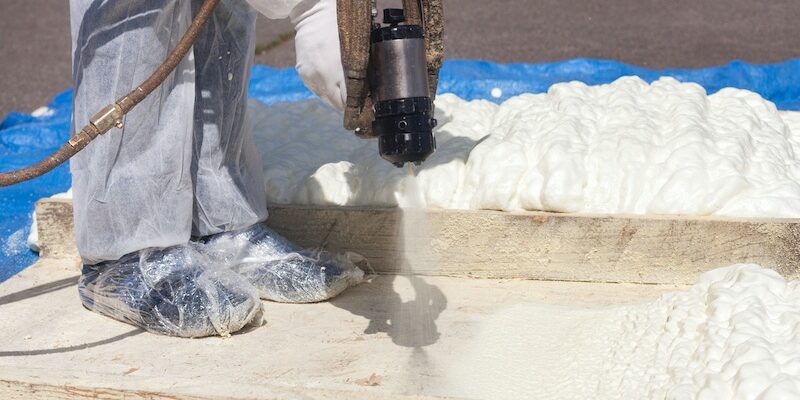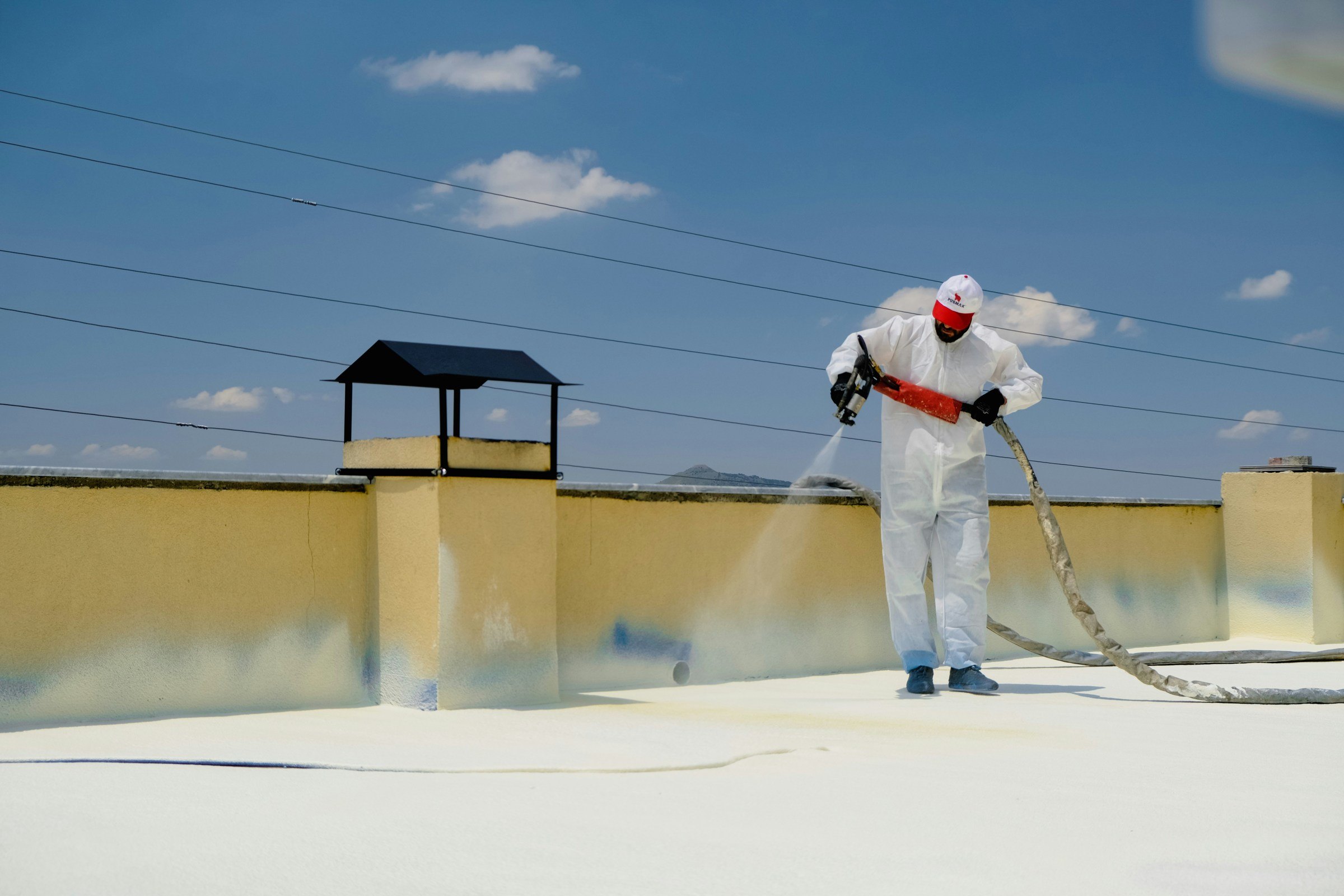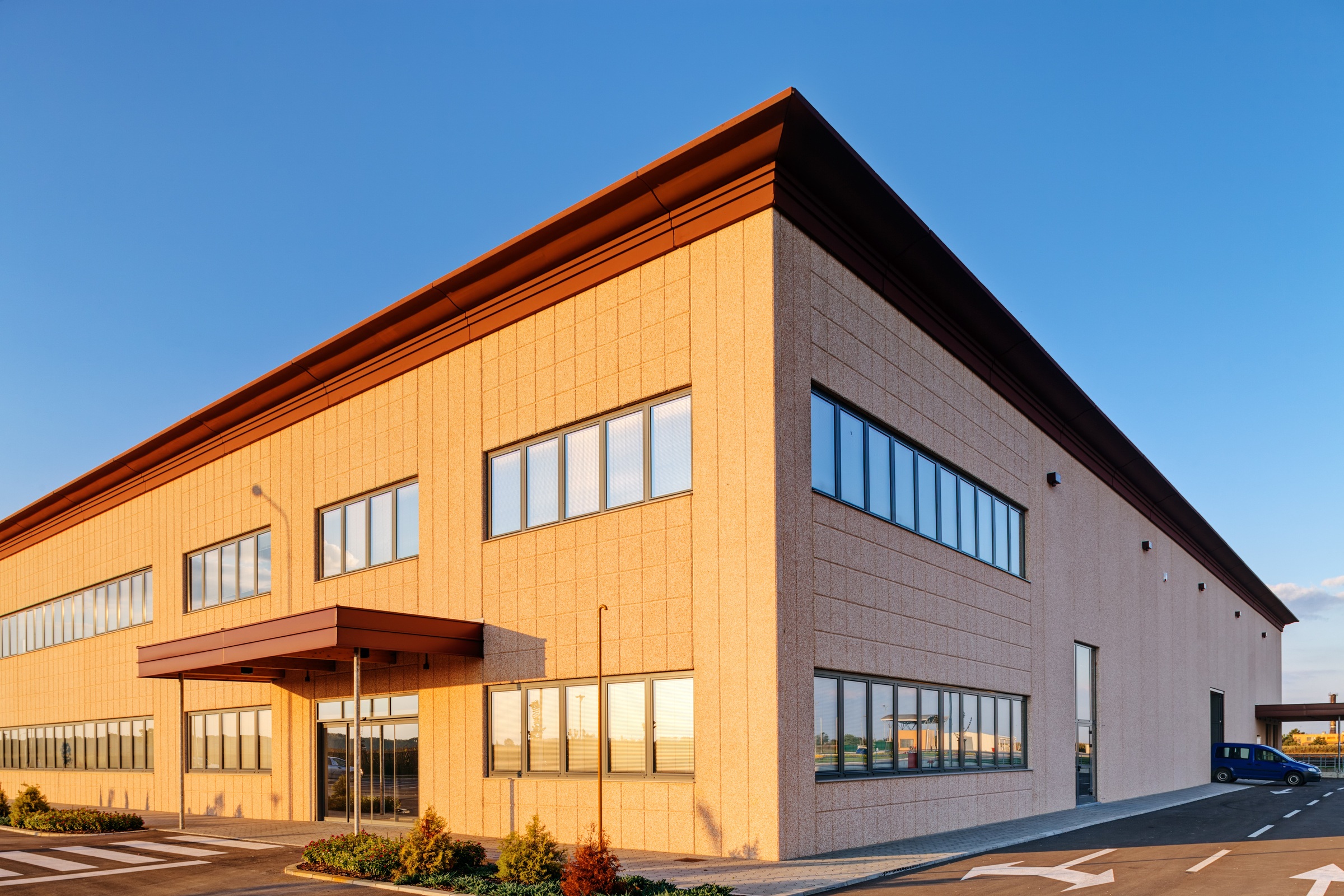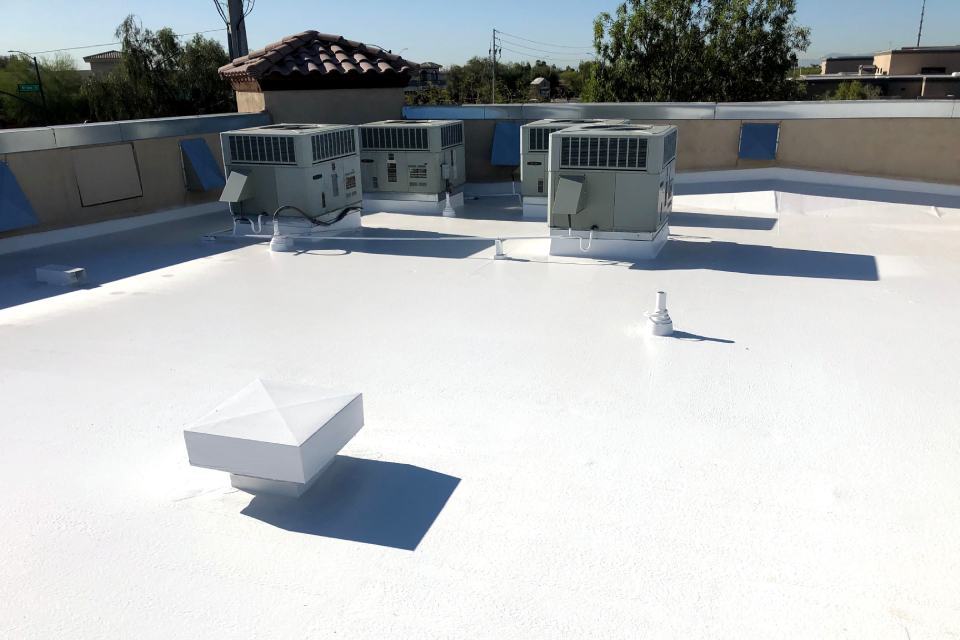
Should I Add Insulation When I Reroof?
When beginning a reroofing project, roof insulation should be at the top of your list! Insulation is an absolute necessity, regardless of whether you’re roofing your commercial or residential building. Insulation saves energy by keeping cold air in during the summer, and warm air during those cooler days.
And because this will make your space more energy efficient, it’ll also save you money on your energy bill!
Understanding R-Value
One of the ways we measure the effectiveness of insulation is what is referred to as its R-value. We recently shared an article on the basics R-value, but in short, R-value measures how well insulation resists heat.
The higher the R-value, the more insulation the material provides. Remember, though, the moment roofing insulation gets wet its R-value decreases significantly, so you’ll want to do your best to eliminate the possibilities of that happening!
With that in mind, let’s take a closer look at a few different types of insulation that you can choose from. The three we’ll be discussing today all consist of polystyrene — a versatile plastic mixed with air to create a foam insulation.
Because of its durability and water resistance, it’s commonly used for commercial roof insulation.
Expanded Polystyrene
Expanded polystyrene (or EPS for short) is a polystyrene infused with a foaming agent, which expands when exposed to heat and molds into an insulating material. Fun fact: this same material is used to manufacture styrofoam coffee cups. EPS has an average R-value between R-3.6 to R-4.2 (depending on the panel’s density) and at $0.26/sq. ft. for a 1” thick panel it’s the most cost effective of the bunch.
Polyisocyanurate
Polyisocyanurate (or ISO) is a closed cell foam and the ideal choice for a low slope building. On the higher end of the cost spectrum, ISO runs an average of $0.70/sq. ft. for a 1” thick panel. It also has the highest R-value of the group, starting at R-8, but that typically decreases down to R5.5 over time.
Extruded polystyrene
Extruded polystyrene (or XPS) is made up of polystyrene crystals blended and melted together with special additives. It’s processed through a die and expanded into foam! XPS sits right in the middle of EPS and ISO in terms of both price and performance. The average cost for this insulation $0.42 sq. ft. for a 1” thick panel.
Here’s another interesting fact: it’s known for its blue, green or pink color (when you think of insulation, this is probably the first one that comes to mind). Its R-value is R-5, right in the middle of its counterparts.
Well, there you have it! Three different options for your commercial roofing insulation needs. Ready to move forward with insulating your building? Or have questions? Contact us at SUNVEK to help get your space ready to handle any weather headed your way!
Ready to start your project?
More From Our Blog
I have a foam roof. Now what? How do I care for it?
Spray polyurethane foam is a fantastic product. It provides many benefits. When properly installed, it: Provides a seamless covering of…
Pick the Best Commercial Roof Coating for Your Arizona Building
Choosing the best roof coating for a commercial building in Arizona can make a big difference to your space, budget…
Advantages of Spray Polyurethane Foam Roofing
Have you considered a foam roof? Quite often, spray polyurethane foam can be applied directly over an existing roof surface,…


